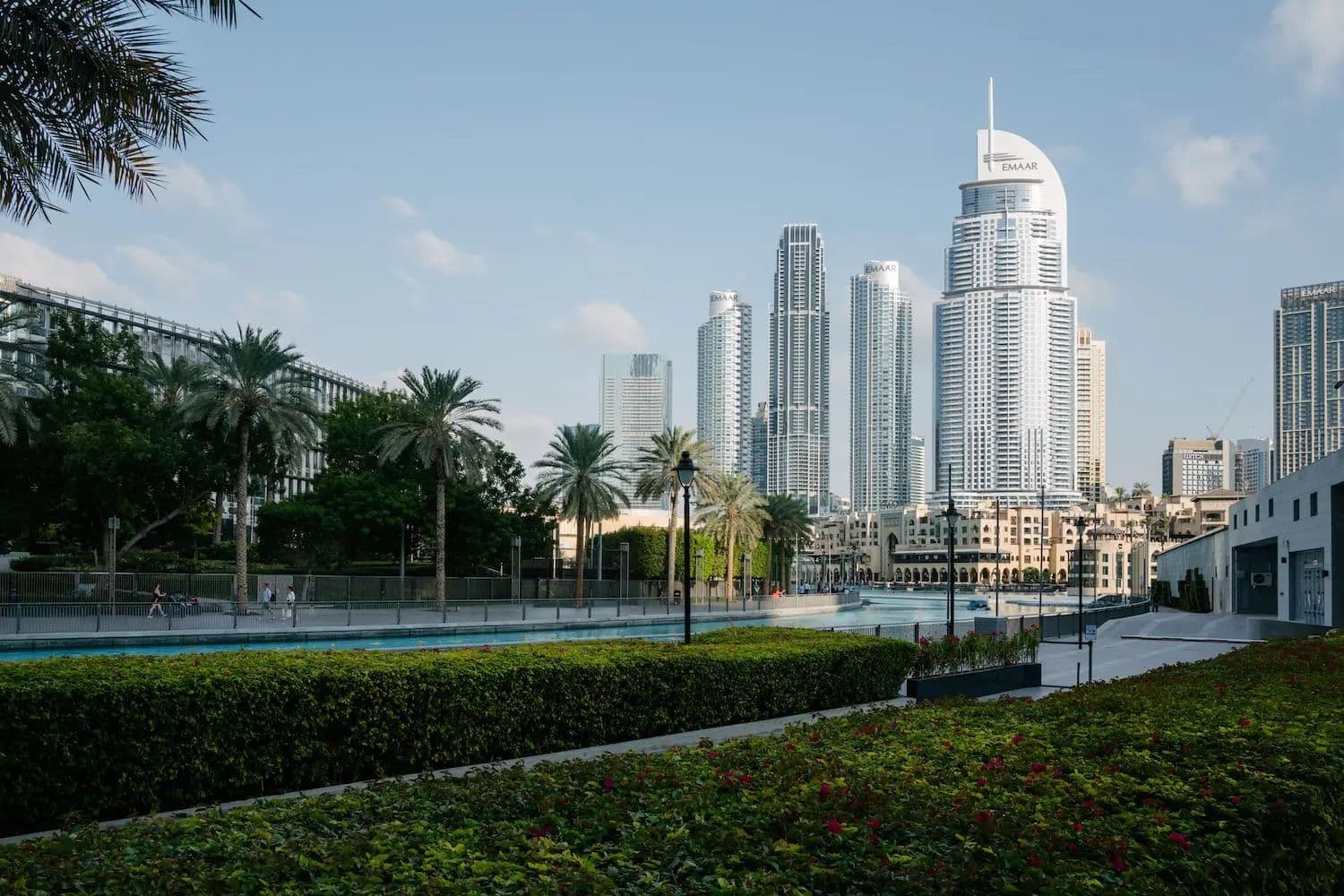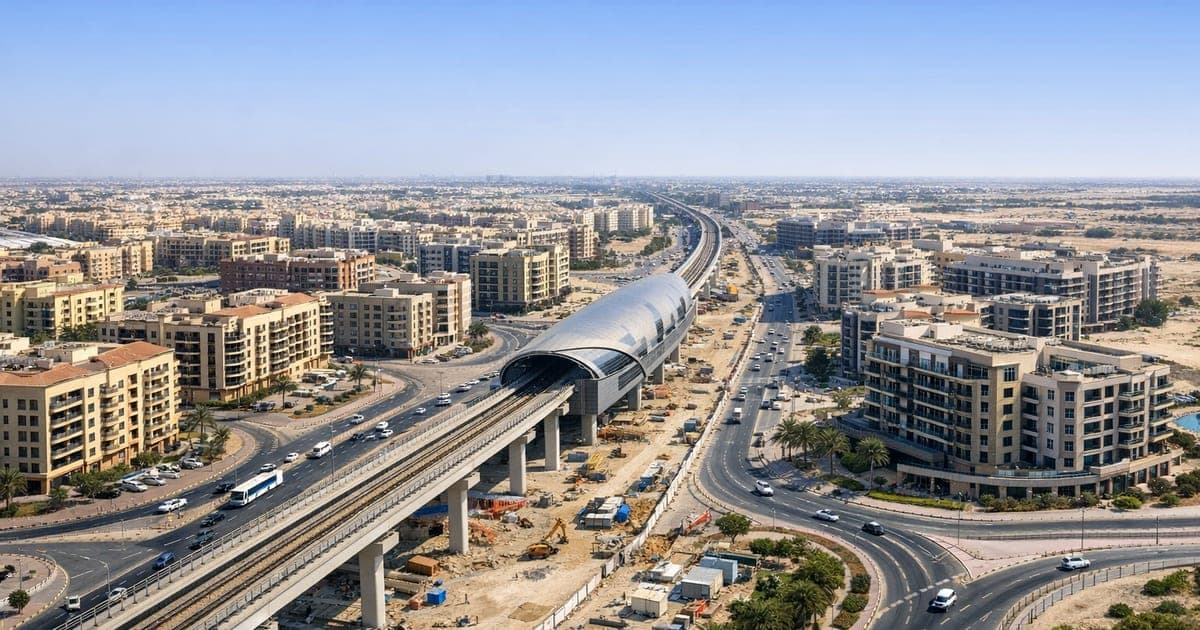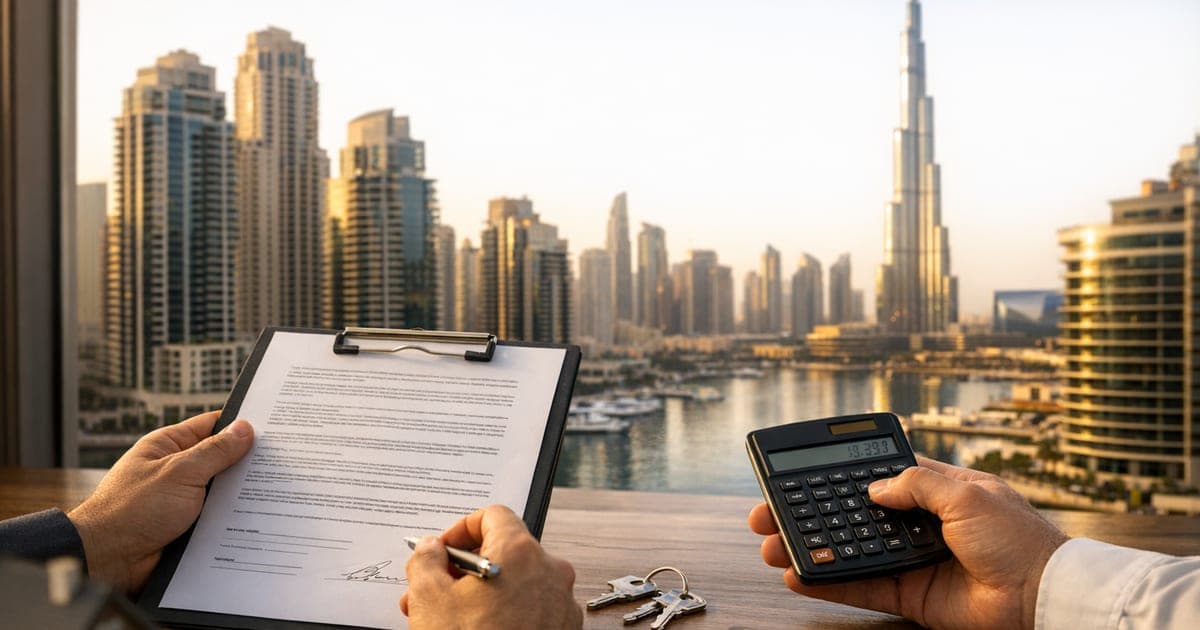Michael
•July 1, 2025

Moving to Dubai represents one of the most exciting opportunities for international professionals, entrepreneurs, and families seeking a dynamic lifestyle in one of the world's most cosmopolitan cities. However, navigating Dubai's unique rental market can seem daunting for newcomers unfamiliar with the emirate's distinctive property laws, payment systems, and cultural practices. Unlike rental markets in Europe, North America, or other international destinations, Dubai operates under a system that requires substantial upfront payments, post-dated cheques, and specific documentation that can catch first-time renters off guard.
Understanding Dubai's rental landscape is crucial for anyone planning to relocate to the emirate, as housing typically represents the largest expense in your monthly budget and requires significant financial preparation. The rental market in Dubai operates on annual contracts with unique payment structures that differ dramatically from monthly rental systems common in other global cities. With average rental costs ranging from AED 4,000 to 20,000 per month depending on location and property type, and upfront costs potentially reaching 120% of annual rent, proper preparation and knowledge of the system can save newcomers thousands of dirhams and prevent costly mistakes.
This comprehensive guide provides everything you need to know about renting property in Dubai, from understanding the complete cost structure and documentation requirements to navigating the cheque payment system and Ejari registration process. Whether you're a young professional seeking a studio apartment in Dubai Marina, a family looking for a villa in Arabian Ranches, or an entrepreneur planning to establish residence in Downtown Dubai, this guide will equip you with the knowledge and confidence to secure your ideal home in the emirate.
Dubai's rental market in 2025 continues to evolve with new regulations, digital innovations, and changing market dynamics that affect both costs and processes. Recent data shows that rental prices have stabilized in many areas while new payment options and digital services are making the rental process more accessible to international residents. Understanding these current trends and requirements ensures that you can navigate the market effectively while making informed decisions that align with your budget and lifestyle preferences.

Dubai's rental market operates under a unique framework that reflects the emirate's position as a global business hub with a predominantly expatriate population. Unlike traditional rental markets where monthly payments are the norm, Dubai's system is built around annual contracts with substantial upfront payments that require careful financial planning and preparation. This system evolved to provide stability for both landlords and tenants in a market characterized by high mobility and international residents who may have varying credit histories and financial backgrounds.
The rental market in Dubai is governed by comprehensive regulations established by the Dubai Land Department and enforced through the Real Estate Regulatory Agency (RERA). These regulations provide protection for both tenants and landlords while establishing standardized procedures for contract registration, dispute resolution, and rent determination. The legal framework ensures that all rental agreements must be registered through the Ejari system, creating an official record that protects tenant rights and provides legal recourse in case of disputes.
Market dynamics in Dubai are influenced by several factors that newcomers should understand when planning their housing search. The emirate's economy attracts professionals from around the world, creating consistent demand for quality rental properties across various price points. However, this demand varies significantly by location, with premium areas like Downtown Dubai, Dubai Marina, and Palm Jumeirah commanding higher rents while emerging areas and communities farther from business districts offer more affordable options.
Seasonal fluctuations also affect Dubai's rental market, with peak demand typically occurring during the cooler months from October to April when many expatriates prefer to relocate. During these periods, competition for desirable properties increases, potentially affecting both availability and pricing. Conversely, the summer months often present opportunities for better deals and more negotiating power, though the selection may be more limited.
The rental market is segmented into several distinct categories that cater to different demographics and budgets. Luxury properties in prime locations target high-income expatriates and business executives, while mid-market developments serve the majority of professional expatriates and their families. Budget-friendly options in emerging communities provide affordable housing for younger professionals and those seeking to minimize housing costs while maintaining access to Dubai's opportunities.
Understanding these market dynamics helps newcomers set realistic expectations and develop effective search strategies. Properties in established communities with mature infrastructure and amenities typically command premium rents but offer convenience and lifestyle benefits that may justify the additional cost. Newer developments may offer modern amenities and competitive pricing but might lack the established community feel and proven track record of older areas.
The rental market also reflects Dubai's rapid development and urban planning initiatives, with new communities and developments regularly entering the market. These new areas often provide opportunities for competitive pricing and modern amenities, though they may require longer commutes to established business districts. Staying informed about upcoming developments and infrastructure projects can help newcomers identify emerging areas that offer good value and future appreciation potential.
Understanding the true cost of renting in Dubai requires looking beyond the advertised rental price to encompass all upfront payments, ongoing expenses, and hidden costs that can significantly impact your budget. The total financial commitment for securing a rental property in Dubai typically ranges from 110% to 125% of the annual rent, making it essential to budget accordingly and avoid financial surprises during the rental process.
The primary cost component is the annual rent itself, which varies dramatically based on location, property type, size, and amenities. Current market data for 2025 shows that studio apartments range from AED 35,000 to 120,000 annually, one-bedroom apartments from AED 45,000 to 200,000, two-bedroom units from AED 70,000 to 350,000, and three-bedroom apartments from AED 100,000 to 500,000 or more in premium locations. Villas command even higher rents, with three-bedroom villas starting around AED 150,000 annually and luxury villas in prime locations exceeding AED 1 million per year.
Security deposits represent a significant upfront cost that varies based on furnishing status and property type. Unfurnished properties typically require a security deposit equal to 5% of the annual rent, while furnished properties command 10% of annual rent as security. For a typical AED 80,000 annual rental, this translates to AED 4,000 for unfurnished or AED 8,000 for furnished properties. These deposits are refundable at the end of the tenancy period, minus any deductions for damages or excessive wear beyond normal use.
Real estate agent commissions add another substantial cost to the rental process, typically calculated at 5% of the annual rent and paid by the tenant upon signing the lease agreement. This commission covers the agent's services in property search, viewing coordination, negotiation, and contract facilitation. For an AED 80,000 annual rental, the agent commission would amount to AED 4,000, payable upfront along with other initial costs.
Ejari registration fees are mandatory for all rental contracts in Dubai and include several components that total between AED 120 and 215 depending on the registration method chosen. Online registration through the Dubai REST app costs AED 100 plus AED 10 knowledge fee and AED 10 innovation fee, totaling AED 120. Registration through Real Estate Services Trustee Centers costs AED 120 plus approximately AED 95 plus VAT for service partner fees, bringing the total to around AED 215.
Utility connections and deposits represent additional upfront costs that newcomers must budget for when securing their first rental property. The Dubai Electricity and Water Authority (DEWA) requires a security deposit of AED 2,000 for apartment connections, which is refundable when service is terminated. Internet and cable television installation typically costs between AED 300 and 500, while gas connections where applicable may require an additional AED 200 to 400 deposit.
Housing allowance considerations affect many expatriate employees whose compensation packages include housing benefits. Understanding how these allowances work and what they cover helps in budgeting and property selection. Some employers provide fixed housing allowances that employees can supplement if they choose more expensive properties, while others cover actual rental costs up to specified limits. Clarifying these arrangements before beginning your property search ensures that you select options within your total budget parameters.
Additional costs that newcomers should anticipate include property viewing transportation, document preparation and attestation fees, and potential temporary accommodation costs while searching for permanent housing. These miscellaneous expenses can add several thousand dirhams to the total cost of securing rental accommodation, making it important to budget conservatively and maintain financial flexibility throughout the process.

Dubai's rental payment system centers around post-dated cheques, a practice that remains prevalent despite the UAE's broader push toward digital payments and cashless transactions. This system requires tenants to provide multiple post-dated cheques covering the entire rental period at the time of lease signing, creating a unique financial arrangement that newcomers must understand and prepare for before beginning their property search.
The cheque payment system typically involves providing between one and six post-dated cheques annually, with the specific number negotiated between tenant and landlord based on property type, tenant profile, and market conditions. Single cheque payments covering the entire year are most common for premium properties and established tenants, while multiple cheque arrangements (typically 2, 4, or 6 cheques) are often available for other properties and may be preferred by tenants seeking to spread their cash flow throughout the year.
Understanding the implications of different cheque arrangements is crucial for financial planning and cash flow management. Single cheque payments require the full annual rent amount to be available in your bank account at lease signing, but they often result in better negotiating power and may secure discounts from landlords who prefer the certainty of full upfront payment. Multiple cheque arrangements provide more flexibility for cash flow management but may result in slightly higher overall rental costs and require careful account management to ensure sufficient funds are available when each cheque is presented for payment.
The legal framework surrounding cheque payments in Dubai provides protection for both parties while establishing clear consequences for payment defaults. Bounced cheques carry serious legal implications under UAE law, including potential criminal charges and travel bans, making it essential that tenants maintain sufficient account balances to cover all post-dated cheques throughout the rental period. This legal framework ensures the stability of the rental market while requiring tenants to demonstrate financial responsibility and planning.
Banking requirements for the cheque payment system necessitate maintaining a UAE bank account with sufficient funds to cover all rental obligations. International bank accounts and foreign cheques are generally not accepted for rental payments, making it essential to establish local banking relationships before securing rental accommodation. Most banks in Dubai offer various account types suitable for expatriate residents, with requirements typically including Emirates ID, residency visa, salary certificate, and minimum balance commitments.
Recent innovations in the rental payment landscape are beginning to offer alternatives to traditional cheque systems, though these remain limited and are not yet widely adopted across the market. Some property management companies and newer developments are experimenting with digital payment platforms, bank transfers, and monthly payment plans that eliminate the need for post-dated cheques. However, these alternatives are still emerging and may not be available for all property types or locations.
Practical considerations for managing the cheque payment system include maintaining detailed records of all cheque numbers and dates, ensuring adequate account balances well in advance of payment dates, and understanding bank processing times and potential delays. Many tenants find it helpful to set up automatic transfers or standing orders to ensure their accounts maintain sufficient balances, while others prefer to manage payments manually with careful calendar tracking and account monitoring.
The cheque system also affects lease renewal negotiations and planning, as landlords typically require new post-dated cheques for renewal periods. This requirement means that tenants must plan for significant cash flow requirements at renewal time, particularly if rent increases are implemented or if moving to a new property with different payment terms. Understanding these renewal requirements helps in long-term financial planning and ensures smooth transitions between lease periods.
Securing rental accommodation in Dubai requires comprehensive documentation that demonstrates your legal status, financial capability, and identity to landlords and property management companies. The documentation process can be complex for newcomers unfamiliar with UAE requirements, making it essential to understand exactly what documents are needed and how to obtain them efficiently to avoid delays in your property search.
The foundation of rental documentation begins with proof of legal residence in the UAE, which includes your passport with valid UAE entry stamps, current residency visa, and Emirates ID. These documents establish your legal right to reside in the country and rent property, with landlords and agents requiring current, valid versions of each document. Expired or soon-to-expire documents may result in rental applications being rejected, making it important to ensure all documentation is current before beginning your property search.
Employment documentation forms another crucial component of the rental application process, with most landlords requiring proof of stable income and employment status. A salary certificate from your employer, typically issued within the last three months, provides official confirmation of your employment status, position, and monthly salary. This document should be printed on company letterhead, signed by authorized personnel, and include contact information for verification purposes.
Bank statements covering the previous three to six months demonstrate your financial stability and ability to meet rental obligations. These statements should show consistent income deposits, adequate account balances, and responsible financial management without excessive overdrafts or irregular activity. Some landlords may require statements from multiple accounts or additional financial documentation for self-employed individuals or those with variable income sources.
For employees of established companies, a No Objection Certificate (NOC) from your employer may be required, particularly for certain property types or locations. This document confirms that your employer has no objection to your renting the specific property and may include additional details about your employment terms, housing allowance arrangements, or company guarantees. Not all rentals require NOCs, but having one available can strengthen your application and provide additional assurance to landlords.
Self-employed individuals and business owners face additional documentation requirements that reflect the complexity of verifying income and financial stability for non-traditional employment arrangements. Trade license copies, business registration documents, audited financial statements, and business bank statements may all be required to demonstrate business legitimacy and financial capability. These requirements can vary significantly between landlords and property types, making it important to clarify specific needs early in the application process.
International documentation may require attestation or legalization to be accepted in the UAE rental process. Educational certificates, marriage certificates, or other personal documents from your home country may need to be attested by UAE consulates or undergo apostille processes depending on their intended use. Understanding these requirements early in your relocation planning helps avoid delays when time-sensitive rental opportunities arise.
Digital documentation and record-keeping have become increasingly important in Dubai's rental market, with many agents and landlords accepting electronic copies for initial applications while requiring original documents for final contract signing. Maintaining high-quality digital copies of all required documents enables faster application processing and allows you to respond quickly to rental opportunities in Dubai's competitive market.
Document preparation strategies should include obtaining multiple certified copies of key documents, ensuring all documents are current and valid for the duration of your intended lease period, and organizing documentation in both physical and digital formats for easy access during property viewings and applications. Having complete documentation readily available demonstrates professionalism and seriousness to landlords while enabling you to move quickly when desirable properties become available.
The rental process in Dubai follows a structured sequence that, when understood and properly executed, leads to successful property acquisition and smooth transition to your new home. This process typically takes between two to six weeks from initial search to move-in, though timeline can vary based on market conditions, property availability, and documentation readiness.
The property search phase begins with defining your requirements, budget, and preferred locations based on your work location, lifestyle preferences, and family needs. Dubai's diverse communities each offer distinct advantages, from the urban sophistication of Downtown Dubai and Dubai Marina to the family-friendly environments of Arabian Ranches and Jumeirah Village Circle. Understanding commute times, community amenities, and local infrastructure helps narrow your search to areas that align with your priorities and daily routines.
Online property portals serve as the primary starting point for most rental searches, with platforms like Bayut, Property Finder, and Dubizzle providing comprehensive listings with detailed property information, photographs, and contact details for agents. These platforms allow you to filter searches by location, property type, budget, and specific amenities, helping you identify properties that meet your criteria before investing time in physical viewings.
Expert tipp: Don't waste your time and energy on the search just to let the agent earn the commission for doing nothing. Find a top-tier trustworthy agent with BrokeryHero and let them handle the search for you, it's 100% free for you!
Engaging with real estate agents represents a crucial step in the rental process, as agents provide market knowledge, access to exclusive listings, and professional guidance throughout the transaction. Reputable agents understand current market conditions, can negotiate on your behalf, and facilitate the complex documentation and payment processes required for rental agreements. Selecting agents with strong reputations, relevant experience, and good communication skills significantly improves your rental experience and outcomes.
Property viewings require careful planning and preparation to maximize efficiency and ensure you gather all necessary information for decision-making. Scheduling multiple viewings in the same area or time period reduces transportation costs and time investment while allowing for direct comparisons between properties. During viewings, assess not only the property itself but also the building condition, neighborhood characteristics, parking availability, and proximity to essential services and amenities.
Application and negotiation processes begin once you identify a suitable property, with successful negotiations often depending on market conditions, property demand, and your preparedness to move quickly. In competitive markets, having complete documentation and financial readiness can be decisive factors in securing desirable properties. Negotiation points may include rental price, payment terms, included utilities or services, maintenance responsibilities, and lease duration.
Contract review and signing represent critical phases where careful attention to terms and conditions protects your interests and ensures clear understanding of all obligations and rights. The unified tenancy contract used in Dubai includes standardized terms, but additional clauses and specific arrangements should be thoroughly reviewed and understood before signing. Professional legal review may be advisable for complex arrangements or high-value properties.
Payment processing involves coordinating multiple financial transactions within tight timeframes, including security deposits, agent commissions, and post-dated cheque preparation. Having sufficient funds readily available and understanding bank processing times ensures smooth payment execution without delays that could jeopardize your rental agreement. Some transactions may require same-day processing, making advance preparation essential.
Ejari registration must be completed within 30 days of lease signing and represents the official government registration of your tenancy agreement. This process can be completed online through the Dubai REST app or in person at Real Estate Services Trustee Centers, with online registration offering convenience and faster processing times. Successful Ejari registration provides legal protection and is required for various government services and processes.
Utility connections and service activations typically begin immediately after lease signing and Ejari registration, with DEWA connections being the most critical for electricity and water service. Internet, cable television, and other services can be arranged simultaneously, though installation scheduling may require flexibility and advance planning. Some properties include certain utilities in the rent, while others require tenants to arrange and pay for all services independently.
Move-in procedures include final property inspection, key handover, and documentation of any existing damages or issues that should not be attributed to your tenancy. Conducting thorough move-in inspections and documenting findings with photographs and written reports protects your security deposit and establishes clear baselines for property condition. This documentation becomes important when moving out and seeking full security deposit refunds.
Ejari registration represents the mandatory government process that officially records your tenancy agreement with the Dubai Land Department, providing legal recognition and protection for your rental arrangement. This system, implemented to regulate Dubai's rental market and protect both tenant and landlord rights, requires all rental agreements to be registered within 30 days of lease signing, with failure to register potentially resulting in fines and legal complications.
The Ejari system serves multiple purposes within Dubai's rental framework, including creating official records of all rental agreements, establishing legal frameworks for dispute resolution, providing data for government planning and regulation, and ensuring compliance with UAE tenancy laws. For tenants, Ejari registration provides legal protection, enables access to government services, and creates official documentation of residence that may be required for various administrative processes.
Registration can be completed through several channels, each offering different advantages in terms of convenience, cost, and processing time. Online registration through the Dubai REST app provides the most convenient and cost-effective option, allowing you to complete the process from anywhere with internet access while paying the lowest fees. This digital approach typically processes applications immediately upon submission and payment, providing instant confirmation and electronic certificates.
Alternative registration methods include visiting Real Estate Services Trustee Centers, which offer in-person assistance and support but involve higher fees and potential waiting times. These centers provide valuable assistance for complex situations or when additional guidance is needed, though the convenience and cost advantages of online registration make it the preferred choice for most tenants.
Required documentation for Ejari registration includes the original unified tenancy contract signed by both parties, Emirates ID for both tenant and landlord, passport copies, and any power of attorney documents if representatives are handling the registration. All documents must be current and valid, with any missing or expired documentation potentially causing registration delays or rejection.
The registration process begins with accessing the appropriate platform or visiting a service center, followed by completing the application form with accurate property and tenant information. Payment of registration fees must be completed before application submission, with various payment methods accepted including credit cards, debit cards, and digital payment platforms. Processing times vary by registration method, with online applications typically processed immediately while center-based applications may take several minutes to complete.
Ejari certificates serve as official proof of your registered tenancy and may be required for various purposes throughout your residency in Dubai. These certificates are often needed for school enrollment, bank account opening, government service applications, and visa processing, making it important to obtain and maintain copies for your records. Digital certificates are typically provided via email, while physical certificates can be collected from service centers when required.
Renewal and modification procedures apply when lease terms change or contracts are renewed, requiring updated Ejari registration to reflect current arrangements. Rent increases, lease extensions, or changes in tenant information must be updated in the Ejari system to maintain accurate records and legal compliance. These updates typically follow similar processes to initial registration but may require additional documentation to verify changes.
Common issues and troubleshooting scenarios include documentation problems, payment processing delays, and system technical difficulties that can affect registration completion. Understanding these potential challenges and having backup plans or alternative approaches helps ensure successful registration within required timeframes. Customer support services are available through various channels to assist with registration problems and provide guidance for complex situations.
Effective financial planning for Dubai rentals requires understanding both the immediate cash flow requirements and ongoing financial commitments associated with renting property in the emirate. The unique payment structure and substantial upfront costs demand careful budgeting and financial preparation that extends well beyond simple monthly rent calculations commonly used in other rental markets.
Initial financial requirements typically range from 110% to 125% of annual rent, creating substantial upfront cash flow needs that must be planned for well in advance of your move to Dubai. This calculation includes the full annual rent payment (paid via post-dated cheques), security deposits (5-10% of annual rent), agent commissions (5% of annual rent), Ejari registration fees (AED 120-215), utility deposits (AED 2,000+ for DEWA), and miscellaneous costs for documentation, transportation, and setup expenses.
Cash flow management becomes particularly important given the annual payment structure and post-dated cheque requirements that characterize Dubai's rental market. Unlike monthly rental systems that allow for gradual payment throughout the year, Dubai's system requires having the full annual rent amount available at lease signing, creating significant cash flow implications for budgeting and financial planning. Understanding these requirements helps in structuring your finances and ensuring adequate liquidity for rental commitments.
Emergency fund considerations take on added importance in Dubai's rental market due to the substantial financial commitments and potential for unexpected costs or changes in circumstances. Financial advisors typically recommend maintaining emergency funds equivalent to six months of living expenses, but Dubai's rental structure may warrant additional reserves to cover potential lease renewal costs, security deposit replacements, or unexpected relocation expenses.
Currency and exchange rate planning affects expatriates whose income is denominated in currencies other than UAE dirhams, creating potential exposure to exchange rate fluctuations that could affect rental affordability over time. Understanding these risks and implementing appropriate hedging strategies or currency planning helps maintain budget stability and prevents exchange rate movements from creating financial stress.
Housing allowance optimization strategies help expatriate employees maximize the value of employer-provided housing benefits while ensuring compliance with company policies and tax implications. Understanding how housing allowances are structured, what expenses they cover, and how to document and claim reimbursements ensures that you receive full benefit from these compensation components while maintaining proper financial records.
Long-term financial planning should account for potential rent increases, lease renewal costs, and changing personal circumstances that may affect housing needs and budget capacity. Dubai's rental market can experience significant fluctuations based on economic conditions, supply and demand dynamics, and regulatory changes, making it important to maintain financial flexibility and plan for various scenarios.
Tax implications of rental payments and housing allowances vary based on your nationality, tax residency status, and home country tax obligations. Understanding these implications and maintaining proper documentation helps ensure compliance with all applicable tax requirements while optimizing your overall financial position. Professional tax advice may be valuable for complex situations or high-income individuals with multiple tax obligations.
Navigating Dubai's rental market successfully requires awareness of common mistakes that can cost newcomers thousands of dirhams, create legal complications, or result in unsatisfactory housing arrangements. Understanding these pitfalls and implementing strategies to avoid them significantly improves your rental experience and protects your financial interests throughout the process.
Documentation inadequacy represents one of the most frequent problems encountered by newcomers, often resulting in delayed applications, missed opportunities, or rental rejections. Incomplete documentation packages, expired documents, or failure to obtain required attestations can derail rental applications at critical moments when timing is essential for securing desirable properties. Preparing comprehensive documentation well in advance and maintaining current versions of all required documents prevents these delays and demonstrates professionalism to landlords and agents.
Financial unpreparedness frequently catches newcomers off guard when they underestimate the total upfront costs required for rental agreements in Dubai. Focusing solely on monthly rent amounts without accounting for security deposits, agent commissions, utility deposits, and other fees can result in insufficient funds at lease signing, potentially causing loss of desired properties or forcing acceptance of less suitable alternatives. Comprehensive budgeting that accounts for all costs ensures adequate financial preparation and prevents last-minute financial stress.
Location selection mistakes often occur when newcomers prioritize rent savings over practical considerations like commute times, community amenities, and lifestyle factors that significantly impact daily life quality. Choosing properties based solely on price without considering transportation costs, time investments, and quality of life factors can result in higher overall costs and reduced satisfaction with your Dubai experience. Thorough research and realistic assessment of your priorities helps ensure location choices that support your overall objectives and lifestyle preferences.
Agent selection errors can significantly impact your rental experience, with inexperienced or unprofessional agents potentially causing delays, miscommunications, or inadequate representation during negotiations. Working with agents who lack market knowledge, have poor communication skills, or prioritize their commissions over client interests can result in suboptimal outcomes and frustrating experiences. Researching agent credentials, reading reviews, and interviewing multiple agents helps identify professionals who will provide quality service and effective representation.
Contract oversight represents a critical area where insufficient attention to terms and conditions can create long-term problems or unexpected obligations. Failing to thoroughly review lease agreements, understand maintenance responsibilities, or clarify included services can result in disputes, unexpected costs, or unsatisfactory living arrangements. Professional contract review and careful attention to all terms and conditions protects your interests and ensures clear understanding of all obligations and rights.
Payment timing mistakes can have serious legal and financial consequences in Dubai's cheque-based rental system, where bounced cheques carry criminal penalties and can result in travel bans or other legal complications. Inadequate account management, poor cash flow planning, or misunderstanding of payment schedules can result in insufficient funds when cheques are presented for payment. Careful financial planning and account management ensures all rental obligations are met on time and in full.
Market timing errors often result from inadequate understanding of Dubai's rental market cycles and seasonal fluctuations that affect both availability and pricing. Beginning property searches during peak demand periods without adequate preparation can result in limited options, higher prices, and rushed decisions that may not align with your best interests. Understanding market timing and planning your search accordingly provides better options and negotiating power.
Utility and service setup oversights can result in delays, additional costs, or service interruptions that affect your move-in experience and early residence in Dubai. Failing to arrange utility connections promptly, misunderstanding service requirements, or inadequate planning for internet and other essential services can create unnecessary complications during your transition period. Advance planning and coordination of all service requirements ensures smooth move-in and immediate access to essential utilities and services.
Successfully renting property in Dubai requires thorough preparation, financial planning, and understanding of the emirate's unique rental systems and requirements. The substantial upfront costs, post-dated cheque payment system, and comprehensive documentation requirements create a complex process that can seem overwhelming for newcomers, but proper preparation and knowledge enable smooth navigation of these requirements while securing ideal housing arrangements.
The investment in understanding Dubai's rental market pays dividends throughout your residency, enabling you to make informed decisions, avoid costly mistakes, and maximize the value of your housing investment. Dubai's rental market offers exceptional variety and quality, from luxury apartments with world-class amenities to family-friendly communities with excellent schools and recreational facilities. Understanding how to access and evaluate these options ensures that you find housing that supports your lifestyle objectives and career goals.
Financial preparation remains the cornerstone of successful rental arrangements in Dubai, with the unique payment structure requiring careful cash flow management and comprehensive budgeting that accounts for all upfront and ongoing costs. The substantial initial investment in rental accommodation reflects Dubai's position as a premium international destination, but proper planning ensures that these costs are manageable and provide access to high-quality housing and lifestyle benefits that justify the investment.
The documentation and legal requirements that characterize Dubai's rental market provide important protections for both tenants and landlords while ensuring market stability and regulatory compliance. Understanding and properly completing these requirements protects your interests while demonstrating professionalism and commitment that can improve your negotiating position and rental outcomes.
Dubai's rental market continues to evolve with new technologies, payment options, and regulatory improvements that enhance the rental experience while maintaining the stability and protection that characterize the emirate's property sector. Staying informed about these developments and working with knowledgeable professionals ensures that you benefit from improvements and innovations while navigating the rental process effectively.
Ready to navigate Dubai's rental market with confidence and expert guidance?
BrokeryHero connects you with the most experienced real estate professionals who specialize in helping newcomers find their perfect home in Dubai. Our curated network of the best real estate agents in Dubai understands the complexities of the rental process, from documentation requirements and cheque payments to Ejari registration and utility setup. Whether you're seeking a studio apartment in Dubai Marina, a family villa in Arabian Ranches, or a luxury penthouse in Downtown Dubai, our platform makes it easy to find professionals who will guide you through every step of the rental process. Don't let Dubai's unique rental requirements overwhelm your move – connect with experts who know how to navigate the system efficiently and cost-effectively.
Start your Dubai rental journey with confidence today!
Disclaimer: The content provided in this article is for informational purposes only and does not constitute legal, financial, or investment advice. Readers are encouraged to conduct their own research, consult with licensed professionals, and verify credentials or certifications directly with the Dubai Land Department (DLD) or appropriate regulatory bodies before making any real estate decisions.
BrokeryHero and the authors of this article disclaim any liability for decisions made based on the content herein.
Get the latest articles delivered every week.
By subscribing, you agree to receive blog updates. Unsubscribe anytime.
Feb 19, 2026

Feb 12, 2026

Feb 9, 2026

Feb 5, 2026

Feb 2, 2026

Feb 1, 2026

Jan 31, 2026

Jan 29, 2026
